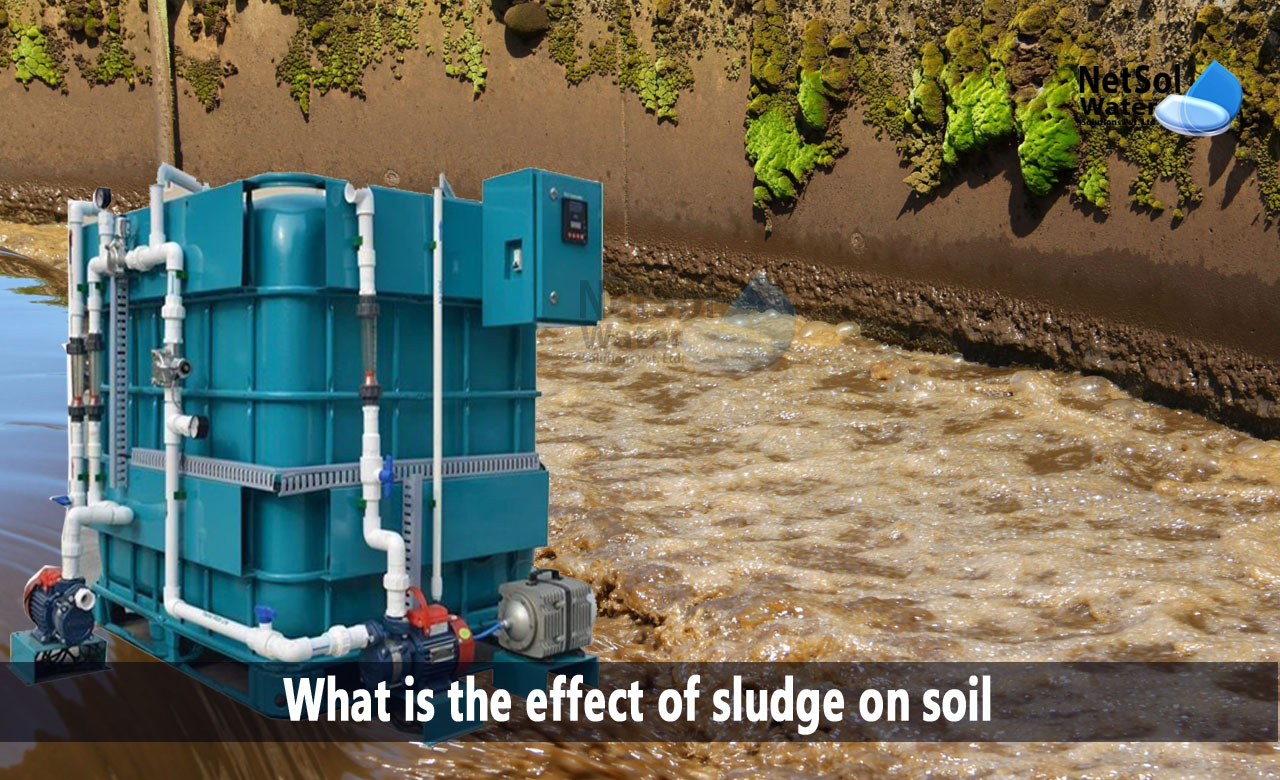The disposal of sewage sludge, a by-product of wastewater treatment, has become one of the most difficult tasks of the twenty-first century. There are many different ways to convert sewage sludge into a soil amendment, and they all have unique advantages and disadvantages, in terms of the substrate, treatment time, and physicochemical conditions.
Let’s see if sludge has some effect on soil!
What is sewage sludge?
A heterogeneous combination known as sewage sludge (SS) is produced as a by-product, at a wastewater treatment plant (WWTP). Colloids and solid organic and inorganic materials that were eliminated from the wastewater during the treatment process, make up this complicated solution.
Production of Sewage Sludge
According to estimates, 45 million dry matter units of SS are produced worldwide each year. Since, the production of SS increased by 1.5 million dry matter (DM) over the past ten years—from 11.5 million in 2010 to 13 million in 2020—its management is a major issue.
Sludge from WWTPs is recycled through the creation of compost, direct application to farmland and forestland, the creation of growth substrates, and energy recovery. Sewage sludge is being reused more often than it is being dumped, because it is both practical and lawful.
This strategy is in line with the zero-waste strategy since it seeks to reduce waste generation, and encourage the growth of the bio-economy, which offers intelligent waste management.
Problem with Sewage Sludge
The amount of organic matter in the soil is constantly dwindling. A sizeable portion of SS is not returned to the soil but instead is dumped into bodies of water, burned, or is subjected to other types of harmful processes, which causes a sharp decline in soil fertility and on-going soil deterioration.
What is the effect of sludge on soil?
The SS's stockpile is constantly expanding. The uniqueness of sewage sludge is found in its multi-mineral composition, and wide variety of organic matter; in fact, sewage sludge is a nitrogen-phosphorus-potassium organic fertilizer that contains all the microelements, required for crop growth.
However, a significant portion of human and material resources are dedicated, to the eradication of this vital resource because of the high danger of pathogenic impact.
The vast majority of sewage sludge disposal techniques are pricy, dangerous, or combine both traits. The treatment of wastewater is a growing issue for most towns. Waste is frequently burned or dumped into landfills or the ocean. An integrated strategy for reintroducing the sludge into the agricultural cycle, is the sensible response to the issue of municipal sewage sludge disposal.
What happens when excessive sludge is disposed of on the soil?
Enhancing crop yield, as well as the build-up of nutrients and organic matter in the soil, can be accomplished by amending the soil with sludge. In the event that the sludge is continually utilized, it is necessary to periodically monitor the build-up of humic substances (HS) in soil and plant tissues.
Sludge has different effects on plant growth depending on how it is applied, such as "mulching" at the soil's surface or mixing it evenly with the soil. The use of sludge on the surface has certain benefits, including limiting water evaporation by creating a physical barrier, which prolongs the retention of soil moisture. Importantly, it is not advised to apply sludge directly to agricultural soils.
Conclusion
In crop production, sewage sludge can take the place of mineral fertilizers. The quantity and ratio of mineral elements that are available to the plant throughout plant growth, should be taken into consideration.
Potassium and phosphorus may not be fully supplied to plants by sewage sludge. Because, sewage sludge releases nutrients gradually, it is suggested for plants with extended vegetative periods. During seed germination, a phytotoxic impact could manifest.
How can we assist?
Netsol Water is a well-known and reputable water treatment plant, wastewater treatment plant and sewage treatment plant manufacturer and supplier. Our treatment plants include physiochemical, chemical, and biological processes, to convert the sludge into fertilizer so that sludge provides a positive impact on the soil.
We also educate our clients on how to avoid water pollution, by employing a long-term approach and cutting-edge wastewater treatment procedures.
Netsol Water is Greater Noida-based leading water & wastewater treatment plant manufacturer. We are industry's most demanding company based on client review and work quality. We are known as best commercial RO plant manufacturers, industrial RO plant manufacturer, sewage treatment plant manufacturer, Water Softener Plant Manufacturers and effluent treatment plant manufacturers. Apart from this 24x7 customer support is our USP. Call on +91-9650608473, or write us at enquiry@netsolwater.com for any support, inquiry or product-purchase related query.



